News
UDS student transforms learning in deprived Ashanti community with locally-made school furniture

A student of the University for Development Studies (UDS), Mr Ganiu Salifu Luri, has brought relief and renewed hope to pupils and teachers of Asare Nkwanta, a deprived community in the Sekyere Central District of the Ashanti Region, by mobilising residents to manufacture urgently needed school furniture.
Until this intervention, nearly 70 school children in the community endured the discomfort of sitting and lying on the bare floor during lessons, while teachers struggled without desks on which to carry out their work.
The lack of basic learning and teaching resources had long been a barrier to effective education delivery in the community.
Mr Luri, who is serving in Asare Nkwanta as part of the University’s Third Trimester Field Practical Programme (TTFPP), said the situation deeply moved him when he arrived.
Determined to make a difference, he established a community-based initiative named ‘Equip to Excel,’ aimed at mobilising local residents to address the pressing furniture deficit in the school.
Through his foundation, Mr Luri encouraged community members to contribute wood and other materials, after which he personally undertook the carpentry work to produce desks and tables for the school.
His efforts culminated in a formal presentation of the newly manufactured furniture to the school during an assessment visit by his supervisors, including Dr Hardi Shahadu of UDS.
Community elders and school management described the intervention as a game-changer for education in Asare Nkwanta.
“This has solved one of the most urgent challenges in our school. The children can now learn in comfort, and teachers can work more effectively,” an elder remarked during the handing over ceremony.
Asare Nkwanta is one of many underserved communities in the Sekyere Central District, grappling with inadequate infrastructure, limited educational resources, and socioeconomic challenges.
The TTFPP, a flagship component of UDS’academic calendar sends students to such rural and peri-urban areas to live, work, and identify development needs while implementing practical solutions that leave lasting impact.
Mr Luri’s initiative is one of many innovative projects being undertaken by UDS students across Ghana under the TTFPP.
In various communities, these students have addressed issues ranging from sanitation and water supply to health education and skills training with each project tailored to the needs identified in their host communities.
The Vice-Chancellor of UDS has often described the TTFPP as “the University’s most distinctive contribution to Ghana’s development,” combining academic learning with community service to nurture socially responsible graduates while delivering real change at the grassroots.
For Asare Nkwanta, the desks built through the dedication of a young university student now stand as a lasting reminder that with vision, collaboration, and determination, even the most deprived communities can take steps toward educational transformation.
Credit:https:uds.edu.gh/news
News
Beyond NPP, NDC: 2 ‘Gen Z’ MPs unite to prioritise purpose over politics

In a rare display of cross-party collaboration, two Members of Parliament from opposing political traditions have set aside partisan differences to champion a shared cause—empowering women and transforming communities.
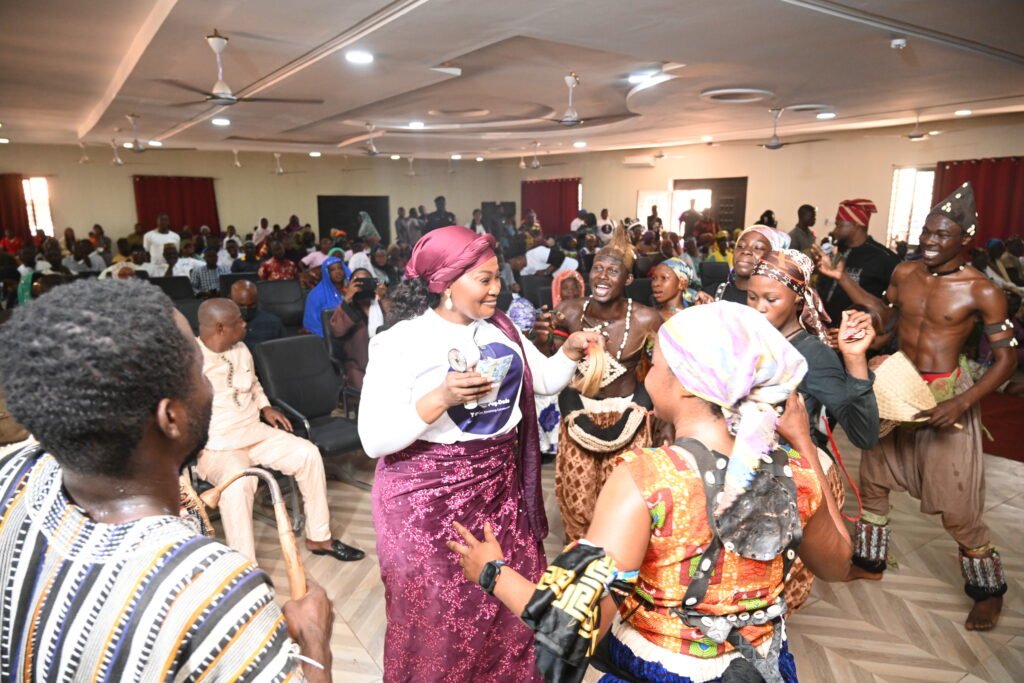
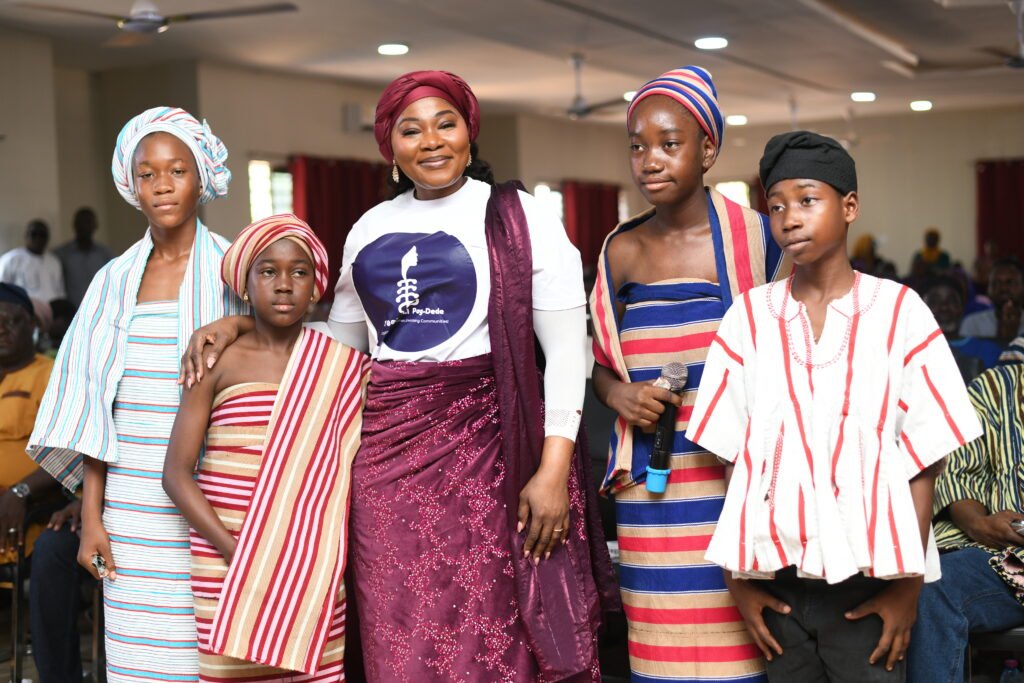
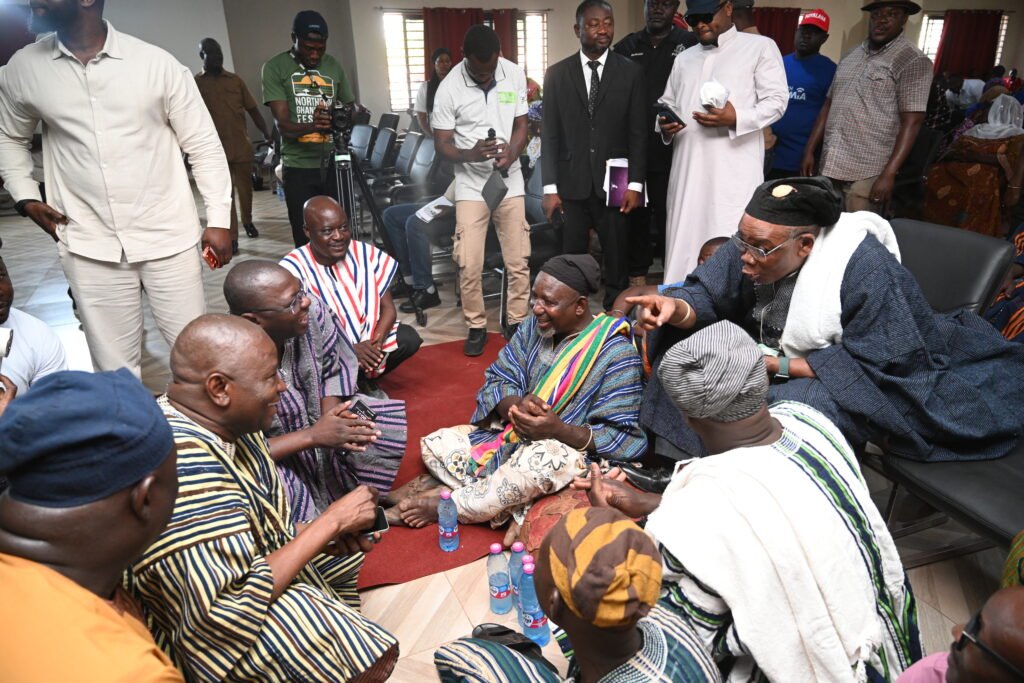
On February 14 (Valentine’s Day), the Savelugu Community Centre hosted the official launch of the Yooyili Pag-Dede Foundation, an initiative designed to expand economic opportunities for women, strengthen early childhood education, nurture youth creativity, and improve access to clean water.
Leading the effort was Abdul Aziz Fatahiya, Member of Parliament for Savelugu (New Patriotic Party), who was joined in solidarity by Dorcas Affo-Toffey, Member of Parliament for Jomoro and Deputy Minister for Transport.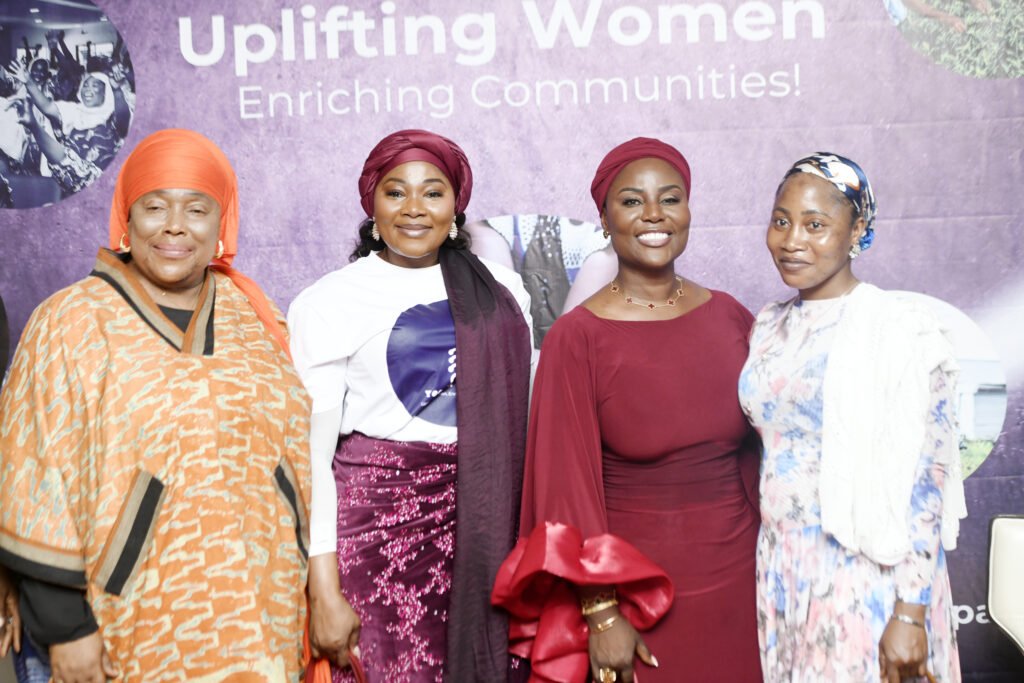
The partnership has drawn attention not only for its development focus but also for its symbolism—a bipartisan alliance centered on people-first leadership.
In her address, Fatahiya emphasised that while the people of Savelugu were hardworking and resilient, many women and young people lack structured opportunities to maximise their potential.
“Our women are determined, but determination alone is not enough. We must build systems that give them access to resources, skills, and markets,” she stated.
She explained that the Yooyili Pag-Dede Foundation will operate through five core programmes, including potable drinking water.
The foundation also seeks to promote financial independence for women and ensure the inclusion of persons with disabilities in community development efforts.
Key initiatives include:
- She Grows: supporting women farmers with training and modern agricultural initiatives.
- Style of Dagbon: a hub for women’s fashion entrepreneurship and creative enterprise.
- Story Weavers of Yooyili: empowering children aged six to 15 as storytellers, artists, and cultural ambassadors.
- Dagbon Karizung: strengthening pre-school education across Dagbon communities.
- Clean Water Project: expanding access to safe and potable water.
Delivering the keynote address, Mohammed Amin Adam, the Member of Parliament for Karaga and former Finance Minister, underscored the central role of education in breaking the cycle of poverty.
He urged parents to prioritise investment in their children’s future and commended Madam Fatahiya for the initiative, supporting it with a donation of GH¢20,000.
Madam Affo-Toffey praised the project, describing it as a commendable initiative worthy of emulation, particularly by female MPs across the country. With an initial GH¢20,000 donation, she noted that the initiative had inspired her to explore similar development models within her own constituency.
Prior to launching the foundation, Madam Fatahiya organised a free breast cancer and chronic disease screening programme that benefited more than 3,000 women across Savelugu.
She described the foundation as an extension of that commitment, aimed at addressing systemic barriers to women’s advancement through practical and sustainable solutions.
In a lighthearted moment that drew laughter and applause, Madam Fatahiya referred to herself and her colleague as “the Gen Z MPs.”
“WE may belong to different political parties, but today we are the Gen Z MPs that collaborate, innovate, and we don’t wait,” she remarked.
She added that a new generation of women political leaders are willing to bridge divides in pursuit of measurable impact.
Also present at the launch was Habib Iddrisu, Member of Parliament for Tolon, who noted that the initiative signals a shift toward issue-based governance to one that prioritises development outcomes.
The event attracted several dignitaries from both political parties, including the Northern Regional Chairman of the NPP, as well as former MCEs and DCEs.
In an era frequently characterised by political polarisation, the bipartisan cooperation witnessed in Savelugu offers a compelling alternative narrative, when leaders unite around shared values and community needs, transformation becomes possible.
From: Geoffrey Buta, Savelugu
Join our WhatsApp Channel now!
https://whatsapp.com/channel/0029VbBElzjInlqHhl1aTU27

News
Teenage pregnancy cases rise in Akatsi South, exceeds national target
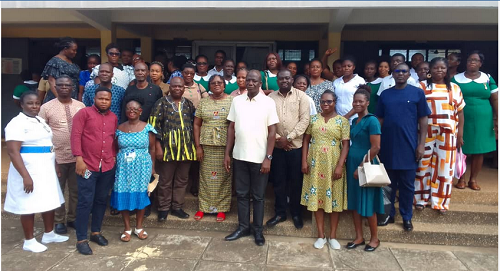
THE Akatsi South Municipality recorded 314 teenage pregnancies in 2025, exceeding the national target despite intensified efforts by health officials to curb the situation.
“Sad as it may be, six girls aged 10–14 years were pregnant, and 269 teenagers delivered, of which five were between 10–14 years, all making up 12.1 per cent against the national target of reducing below 11.5 per cent,” Miss Justine Sefakor Alornyo, Municipal Director of Health Services, disclosed during the 2025 health performance review at the Akatsi South Municipal Assembly Hall.
Under Antenatal Care (ANC), 2,594 pregnant women were registered in 2025, representing 65.9 per cent coverage, up from 2,278 in 2024 with 58.4 per cent coverage.
The Municipality recorded 2,071 supervised deliveries in 2025, a slight increase from 1,997 in 2024. All 2,071 newborns received BCG, Penta, and Measles-Rubella vaccines.
Miss Alornyo attributed the gains to continuous education and advocacy across the Municipality.
On HIV, 151 cases were identified—108 females and 43 males. All are on treatment, including 15 pregnant women who tested positive. Eighteen exposed babies have been placed on prophylaxis.
She added that 60 tuberculosis cases were managed, while investigations into six suspected measles cases, two yellow fever cases, and one Acute Flaccid Paralysis (AFP) case all tested negative.
Highlighting achievements, Miss Alornyo thanked stakeholders, especially the Municipal Assembly, for supporting service delivery. In 2025, the construction of CHPS compounds at Zuta, Ahlepedo, and Asafotsi, as well as the renovation of the Wute Health Centre, is ongoing.
Midwives were posted to Wuxor, Gui, Dzogadze, Akuave, and Livega CHPS facilities, while Dzogadze and Gui CHPS were officially handed over for service delivery.
The annual review assessed progress, achievements, gaps, and innovative strategies to address health challenges.
Akatsi South Municipality is served by 40 health facilities: two hospitals (one private and one municipal), six health centres, 27 CHPS compounds, one CHAG facility, and four clinics.
Infrastructure deficits and transportation challenges remain key concerns.
—GNA
Join our WhatsApp Channel now!
https://whatsapp.com/channel/0029VbBElzjInlqHhl1aTU27







